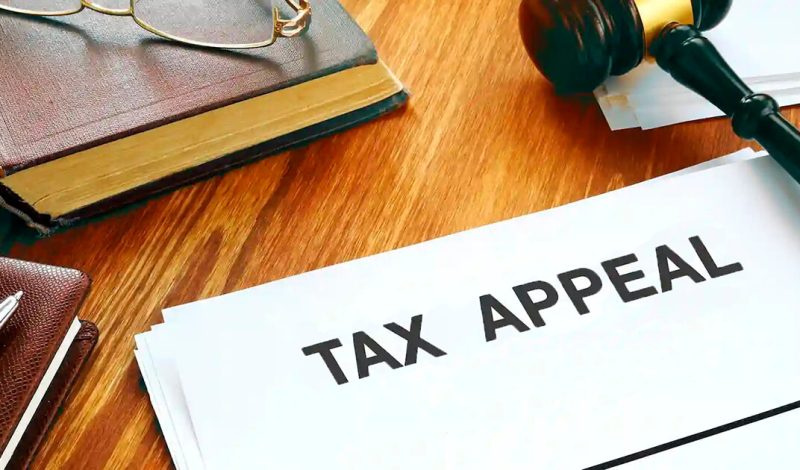When the Tanzania Revenue Authority (TRA) assess a taxpayer, a dissatisfied taxpayer can object against the assessment to the Commissioner General (CG). The objection is only admitted by the CG if the one third of the tax assessed or amount of tax not in dispute (whichever is higher) is deposited. If the taxpayer for one good reason or another is unable to pay the one third of tax assessed the CG may upon receipt of taxpayer waiver application, waive the requirement of payment of one third of tax assessed or accept a lesser amount for validation of the objection.
If the taxpayer finds the reasons put forward in the waiver application before the CG to be good reasons and the CG refuse to waive the statutory payment of one third of tax assessed, the taxpayer has (or had) a right to appeal against the refusal decision before the Tax Revenue Appeals Board. The Tax Revenue Appeals Board had at all times before 31st May, 2019 entertained the waiver appeals which were brought before it under the provisions of section 16(1) of the Tax Revenue Appeals Act, CAP 408 (R.E 2010) and section 53 of the Tax Administration Act, No.10 of 2015. Section 53 of the Tax Administration act gives the taxpayer the right to appeal against the CG’s decision but it makes reference to section 16 of the Tax Revenue Appeals Act with regard to the procedures of appealing. Therefore, these two provisions must be read together.
This position has now been changed by the Court of Appeal (the Court). In deciding Civil Appeal No.121 of 2018 in Pan African Energy Tanzania Ltd vs Commissioner General (TRA) which the taxpayer was challenging CG’s waiver refusal, the Court held that under these two provisions (section 16 and section 53) an appeal before the Tax Revenue Appeals Board is narrowed down to objection decisions of the CG. The decision on waiver application is given before the objection is admitted therefore is out of the scope of objection decision.
What is worrying is that the Court said that it is discernible that the Tax Revenue Appeals Board has no competence to hear appeals against CG’s decision of rejecting to grant waiver in terms of section 53 and 16 of the Tax Administration Act and Tax Revenue Appeals Act. Having formed that view, the Court struck out the appeal and proceeded to nullify the proceedings in the Tax Revenue Appeals Board and Tax Revenue Appeals Tribunal.
Implication of Court of Appeal decision
The Court is the highest court in the land and the Tax Revenue Appeals Tribunal and Tax Revenue Appeals Board are bound by its decision. The implication of this appeal is that all the waiver appeals filed at the Tax Revenue Appeals Board and Tax Revenue Appeals Tribunal under the provisions of section 16 and 53, upon being called for hearing, are likely to be dismissed by the appellate bodies for lack of competence to entertain them.
Even more worrying is the extension of TRA’s powers i.e. the TRA can now reject waiver applications and taxpayers could be forced to resort to other means including borrowing to pay one-third of tax assessed or being subjected to protracted legal proceedings. All this is not good news for taxpayers and the TRA as well because it is likely to collapse businesses which contribute to the economy by paying taxes.
What’s next for taxpayers?
Upon dismissal of waiver appeals, the taxpayer will have to appeal against the decision up to the Court and argue that the Court should depart from its decision in the PanAfrican Energy Tanzania Ltd. In addition, all new waiver appeals should be filed relying on section 7 of the Tax Revenue Appeals Act and where possible, appeals filed under sections 16 and 53 need to be withdrawn at the appellate bodies and request leave to refile them under section 7 of the Tax Revenue Appeals Act.
During the hearing of PanAfrican Energy Tanzania Ltd appeal, the advocate for the TRA submitted to the Court that, the CG’s decision of refusing waiver is not appealable and suggested that it can be challenged by way of judicial review. The Court was silent on this suggestion. Notably too is the fact that the Court did not rectify the anomaly i.e. the Court did not give guidance on the proper forum to challenge the CG’s decision on waiver refusal. It is also surprising that the Court did not address the import of section 7 of the Tax Revenue Appeals Act, which says the Revenue Appeals Board has sole original jurisdiction in all proceedings of a civil nature arising from revenue laws administered by the TRA.
In denying/approving waiver application, the TRA is administering revenue law. The alternative suggested (judicial review filed at the High Court) is not quite neat because the Court has previously ruled in Civil Appeal No.93/2009 in Tanzania Revenue Authority vs. New Musoma Textiles Limited that only the Tax Revenue Appeals Board has jurisdiction to determine tax cases of civil nature in respect of dispute arising from revenue laws administered by the TRA. Perhaps this is why the Court did not comment on the alternative of judicial review.
Although this is not a good decision because it has completely disregarded the objective of giving the taxpayer the opportunity of requesting for waiver if the refusal cannot be challenged before the tax appellate bodies and further disregarded other provisions in the Tax Administration Act which recognize waiver refusal decision as a tax decision subject to appeal, this position is now binding until reversed by the Court. And we think the Court is likely to change to its mind if it directs its attention to section 7 of the Tax Revenue Appeals Act.
Between now and then, we recommend that much focus should be directed to audit/investigation stage and ensure that the tax queries are resolved and/or minimizedbefore the assessment is issued to avoid payment of the colossal amount of tax in the event the Court stand by its decision of making waiver appeals incompetent before the tax appellate bodies.







